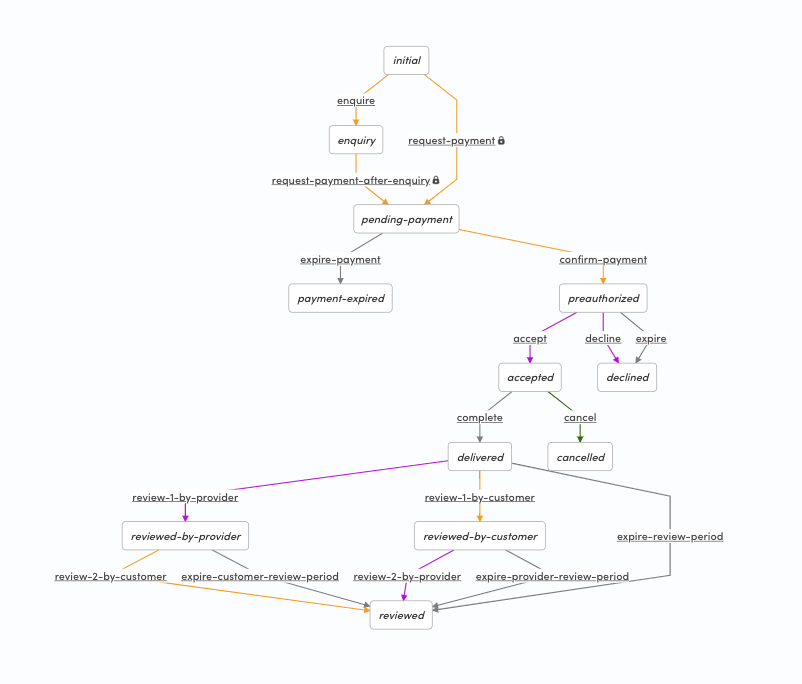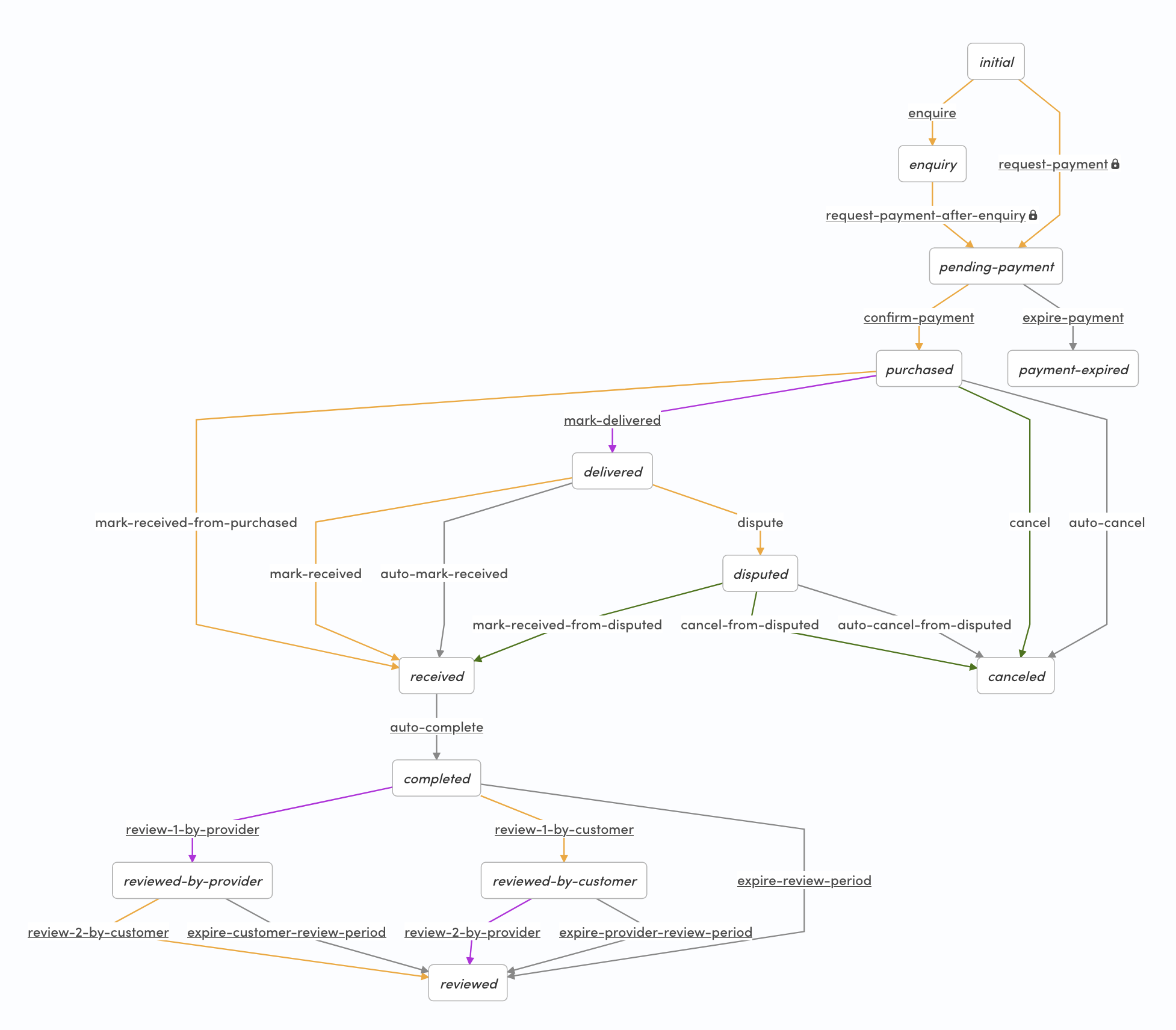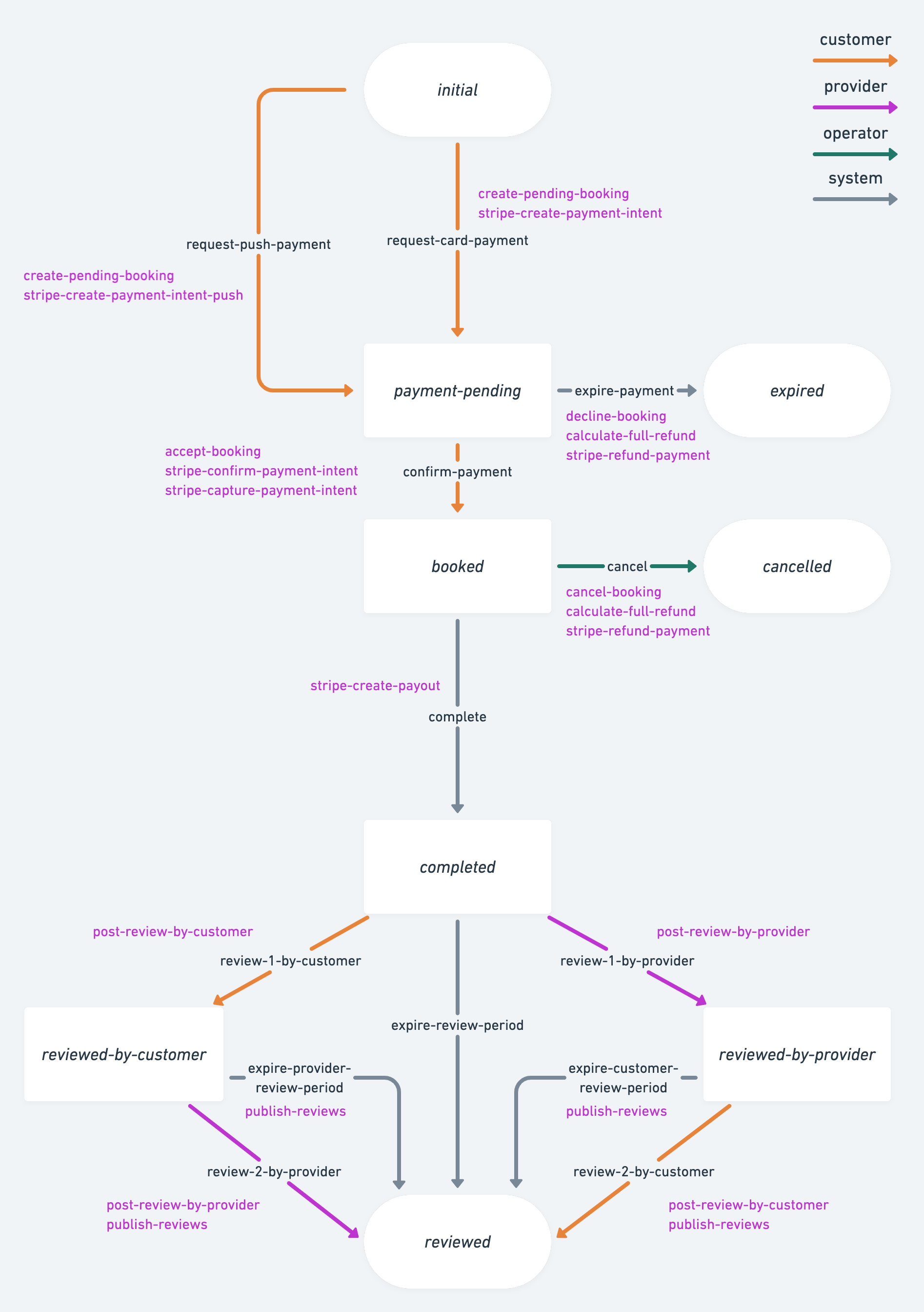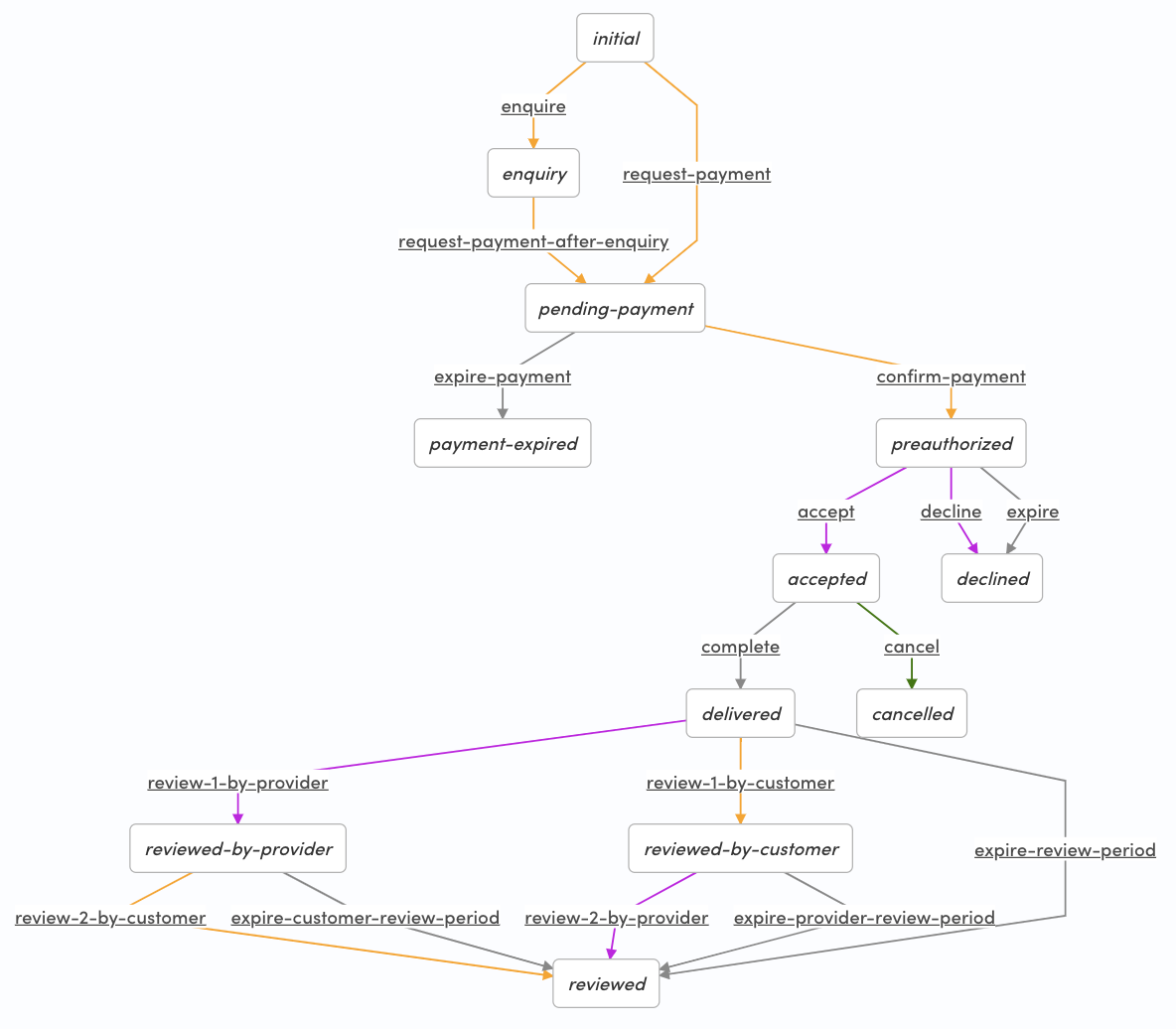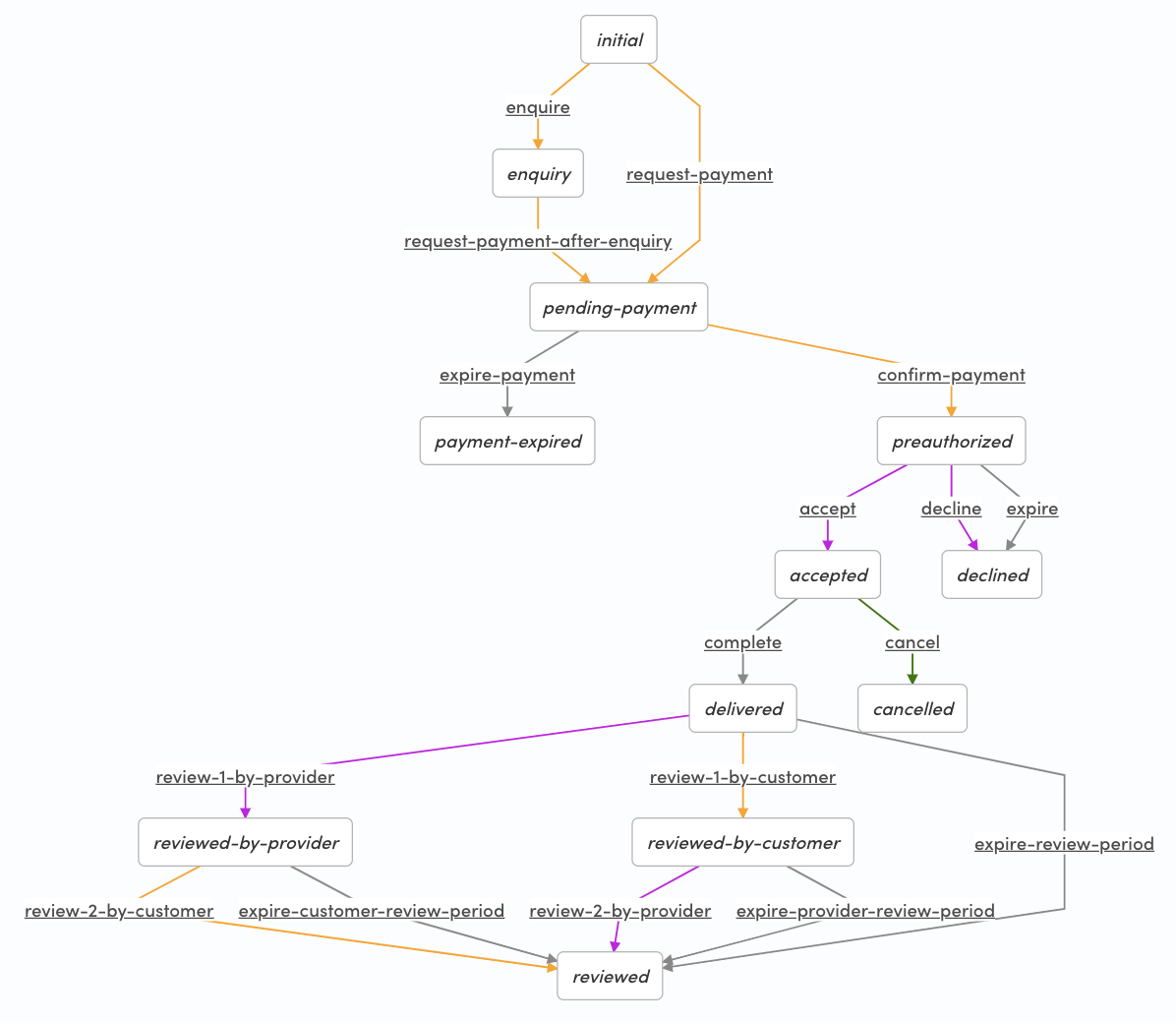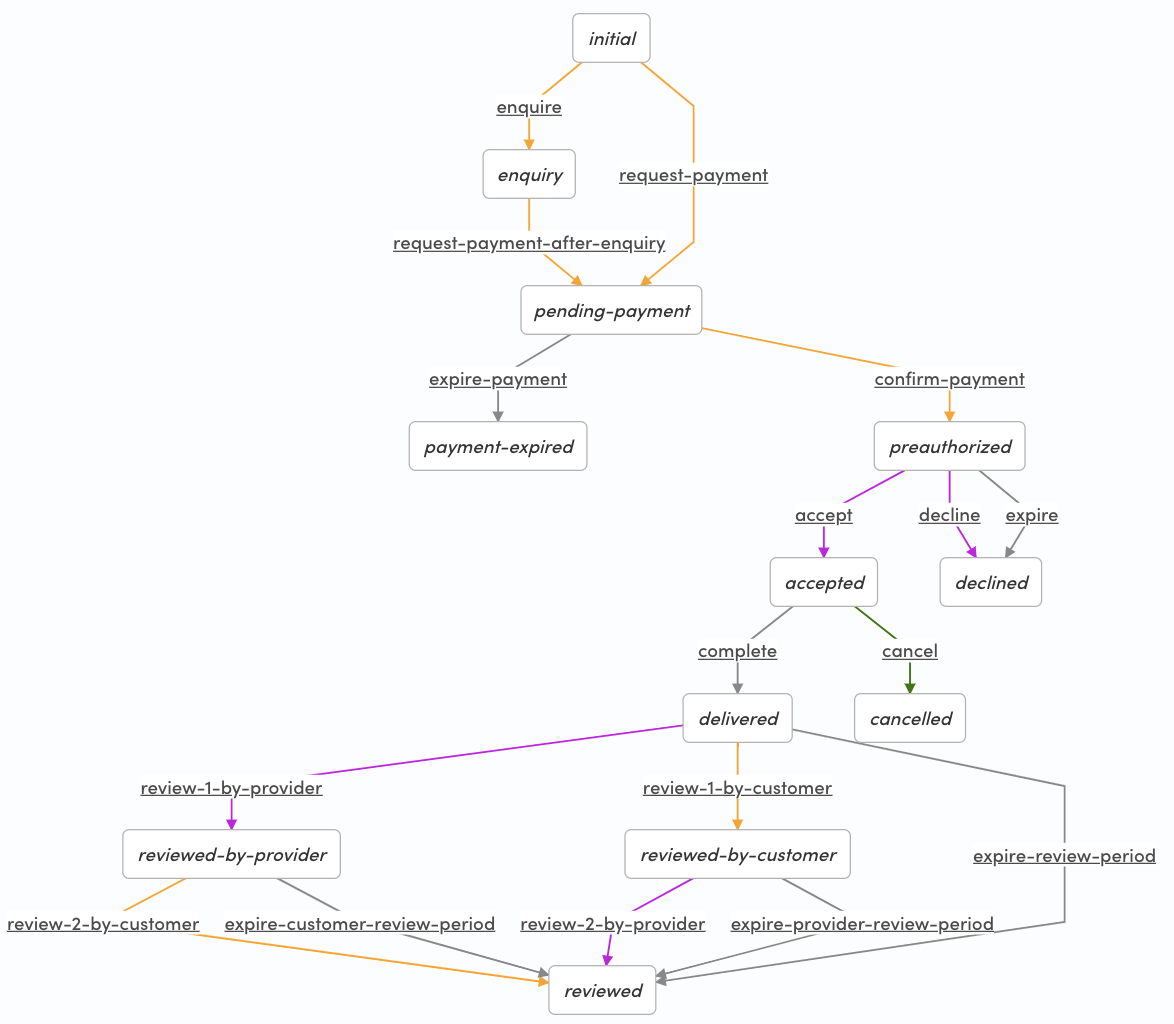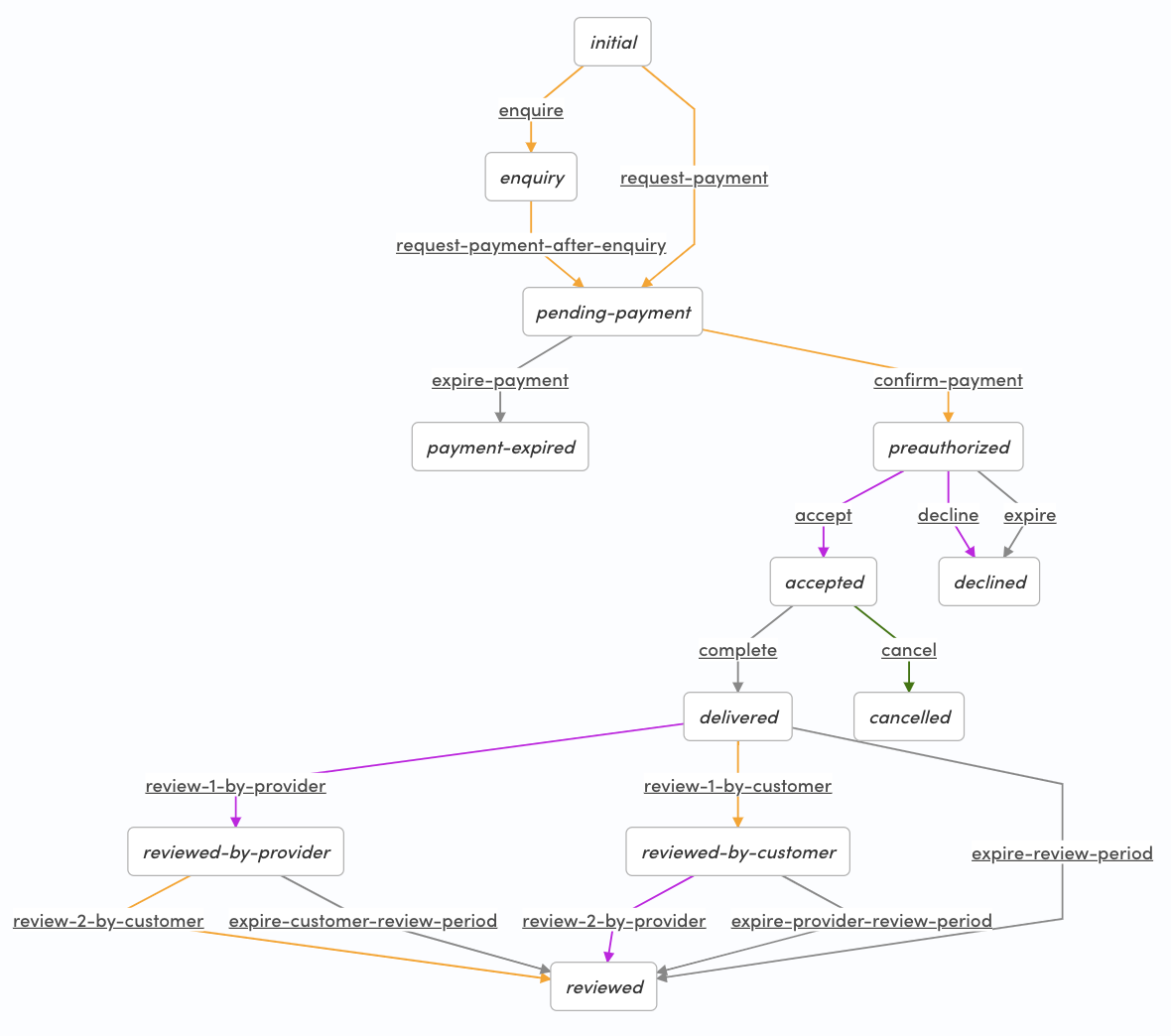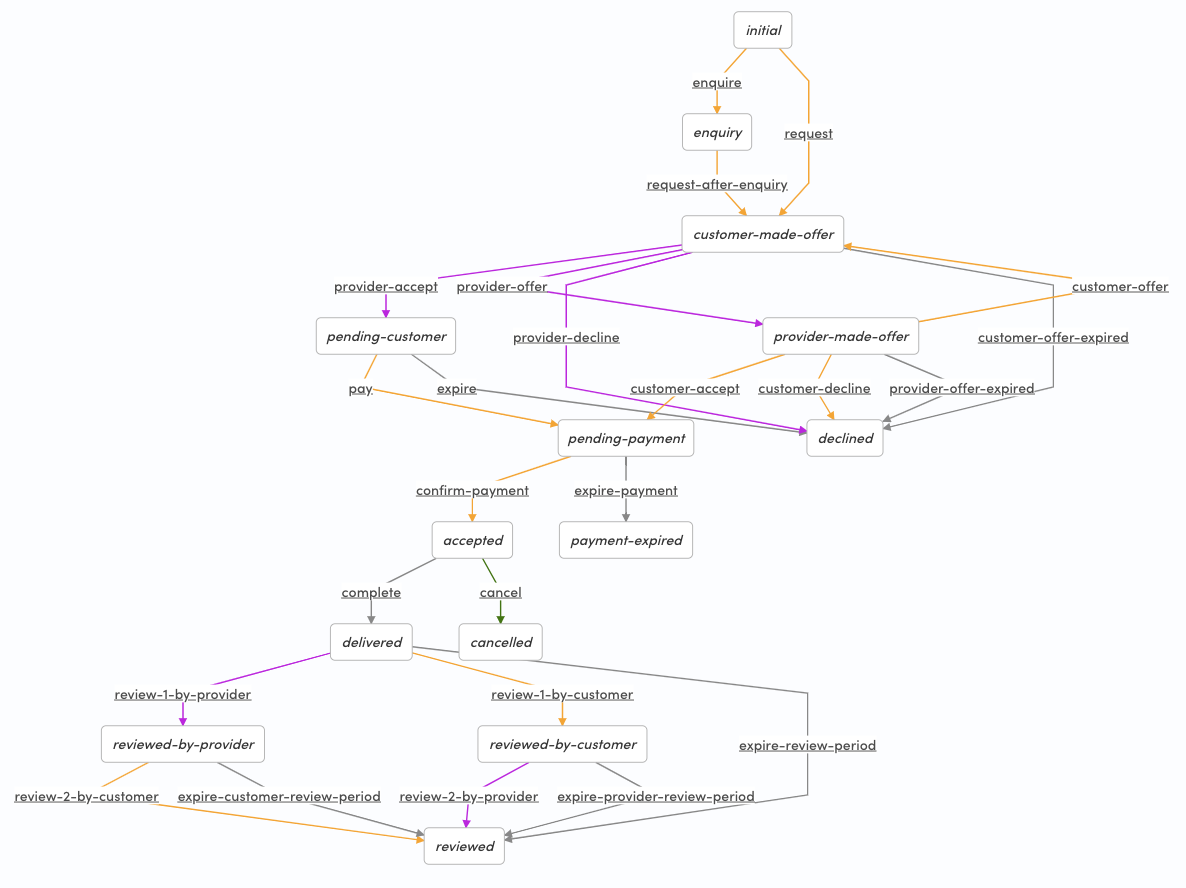This repository contains example transaction processes and the email templates for Sharetribe Flex. These processes can be used as starting points for customizing your marketplace using Flex CLI.
To understand the transaction engine in Sharetribe Flex, see the Transaction process article in Flex Docs.
To get up and running with Flex CLI, see the Getting started with Flex CLI guide in Flex Docs.
Clone this repository:
git clone git@github.com:sharetribe/flex-example-processes.git
Change to the cloned directory:
cd flex-example-processes
Let's use my-marketplace-id as an example Marketplace ID and
preauth-daily-booking as the process that is taken into use.
Using the example processes, create a new process to your marketplace:
flex-cli process create -m my-marketplace-id --process preauth-daily-booking --path preauth-daily-booking
Create an alias to the process:
flex-cli process create-alias -m my-marketplace-id --process preauth-daily-booking --version 1 --alias release-1
Check that everything is good:
flex-cli process list -m my-marketplace-id --process preauth-daily-booking
Then set up your FTW customization to use that process alias and continue customizing your process and UI.
For customizing the transaction process, see the transaction process format guide.
For editing the transactional email templates, see the Email templates reference in Flex Docs.
The example processes are meant to showcase some of the capabilities
of the transaction engine. See the differences in the process.edn
files in each process directory to see how they differ only slightly.
All the processes support Strong Customer Authentication (SCA).
The example processes differ mostly in availability management and pricing. To understand these concepts, see the Listing availability management and Custom pricing articles in Flex Docs.
This is the default process that is created in our backend for new test marketplaces.
When used in Flex Template for Web: Daily (FTW-daily) customizing pricing can be done within FTW by utilizing privileged transitions.
This is the default for FTW-houly. It's otherwise similar to flex-default-process but it uses the time-based availability (i.e. action create-booking has type time).
When used in Flex Template for Web: Hourly (FTW-hourly) customizing pricing can be done within FTW by utilizing privileged transitions.
This is the default process for FTW-product. It is a transaction process designed for product selling with shipping or pickup that uses the Flex stock management features.
When used in Flex Template for Web: Product (FTW-product) customizing pricing can be done within FTW by utilizing privileged transitions.
This is an example of instant booking supporting both, card and push payment methods.
See payment methods overview for more info.
DEPRECATED The current default process is named flex-default-process.
This is the default process that is created in our backend for new test marketplaces and what Flex Template for Web (FTW) expects as the default.
In this process listings are booked for full nights.
DEPRECATED The current default process is named
flex-default-process and it can perform the
preauth-daily-booking functionality.
This is very similar to the preauth-nightly-booking process, but
bookings are made for full days, not nights.
If you use daily bookings, make sure to change the bookingUnitType
in the FTW
config
accordingly.
DEPRECATED The current default process is named
flex-default-process and it can perform the
preauth-unit-booking functionality.
This process calculates the total price by units, not the booking
times. The total price is calculated by multiplying the listing price
by the quantity sent in the transition request.
Note: this process doesn't have availability management enabled since
the :action/create-booking action doesn't set the
:observe-availability? config option.
If you use unit bookings, make sure to change the bookingUnitType in
the FTW
config
accordingly.
DEPRECATED The current default process is named
flex-default-process and it can perform the
preauth-unit-time-booking functionality when create-booking
action is updated with config parameter :type :time.
This process is similar to the preauth-unit-booking process, but has
the time-based availability management enabled. The transaction prices
are calculated based on units.
With daily and nightly bookings, the time component of booking start and end is normalized to UTC midnight. With the time-based availability in this process, also the time component of the bookings dates is relevant.
Note that currently FTW doesn't support time-based availability management, but we are working on a version that has all the relevant UI components in place for time-based bookings and availability management.
This process differs clearly from the other processes as seen in the visualization below. It uses price negotiation where the customer and provider can negotiate a new total price for the transaction.
The transitions for the negotiation showcase an example how to handle the negotiation in an offering phase before moving onto the payment.
Note that price negotiation is just one way to customize the pricing. There is also the powerful Custom pricing that enables lots of use cases for transaction pricing.
